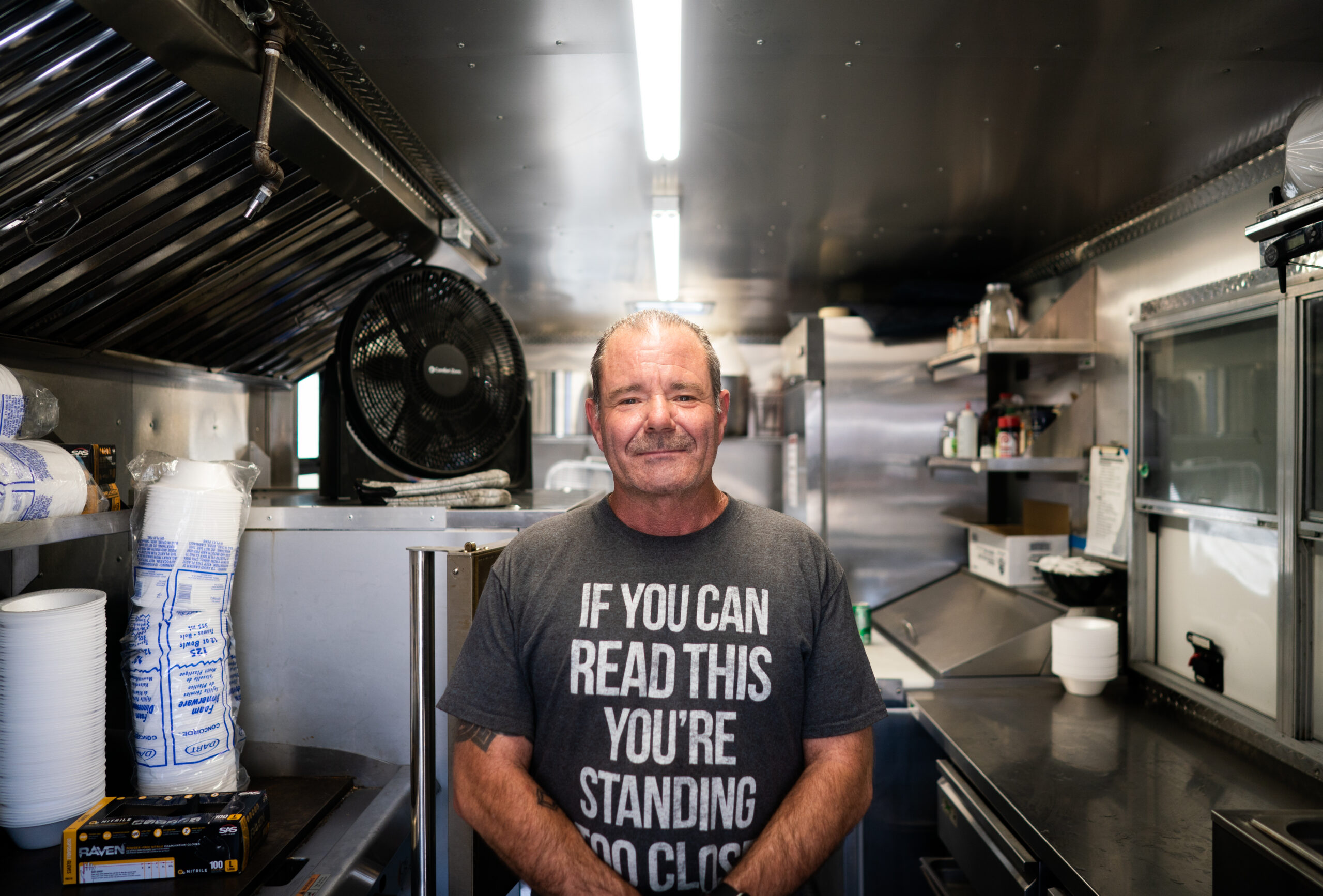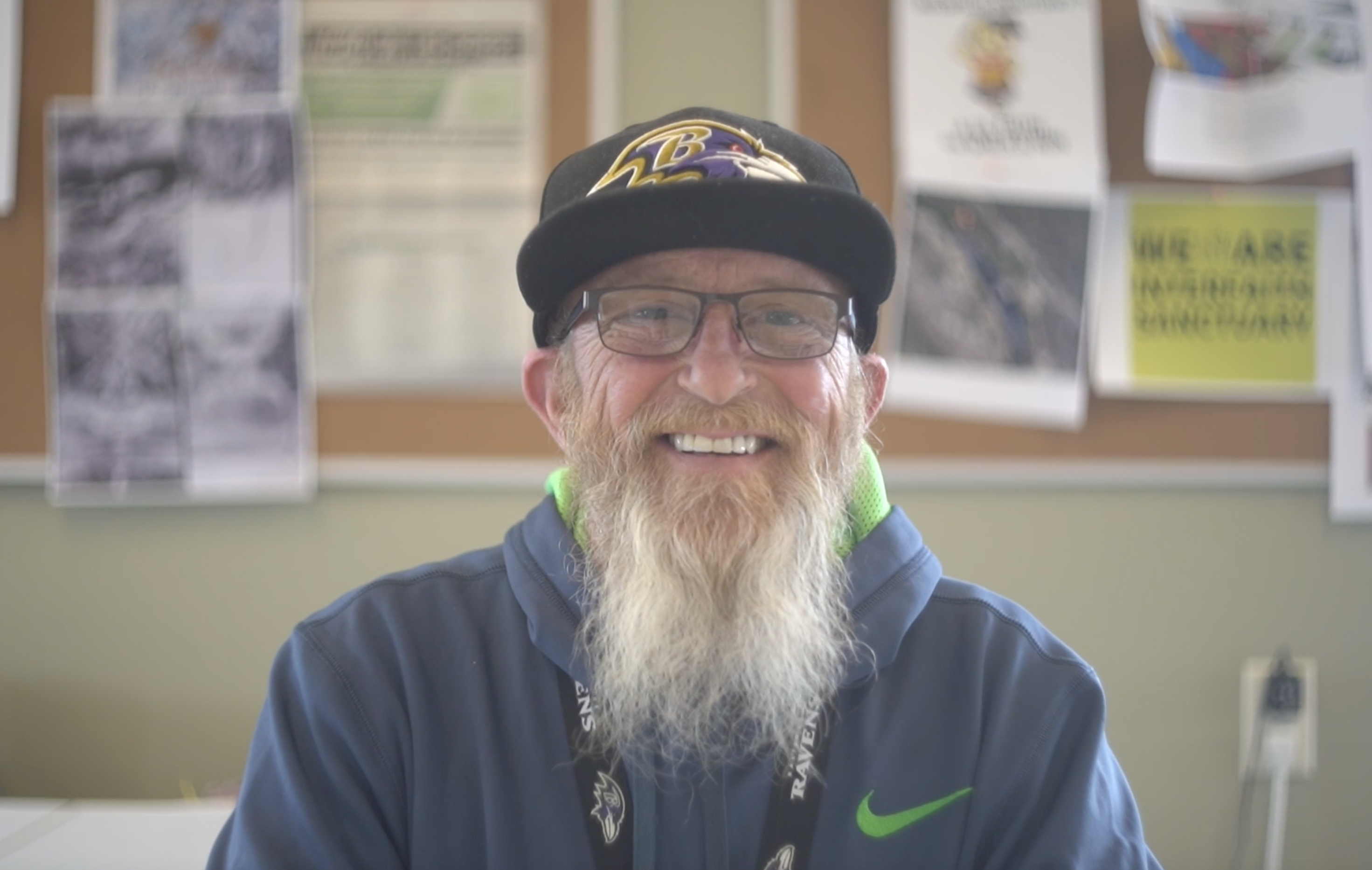

Word on the Street Issue 22, June 2022
By Erin Sheridan
As Idaho’s housing crisis wears on, the lack of tenant protection laws are affecting some more than others. While the state’s failure to implement rent control has priced many people out of the market, Idahoans with felony convictions have it even worse.
People who have spent time in prison are frequently barred from the housing and jobs they need to survive, even when the market is affordable. This is for a simple and preventable reason: Idaho doesn’t guarantee that people with felony convictions have the right to be fairly considered when they submit applications.
Most Idahoans with felony convictions don’t have the chance to explain the circumstances of those convictions or their journey since. Instead, they mark a checkbox on applications stating they’ve been convicted of a felony and are generally screened out from the onset. All of this happens despite the fact that under Idaho law, people with felony convictions who have completed sentences and parole are supposed to be returned “the full rights of citizenship.”
The lack of protections for people with a criminal history means they’re frequently pushed into the shelter system or onto the streets when no one steps in to assist. But it doesn’t mean they’re not valuable, or even that the convictions warrant such exclusion. At Interfaith Sanctuary, guests in the shelter’s addiction treatment program frequently encounter discrimination for mistakes they made years ago as they put in the work to move forward.
Jeff Chapman, a Project Recovery alumni who runs the shelter’s food service training program, knows how challenging those rejections can be. “We got denied every time because of our backgrounds,” he said of his search for housing with a roommate last year. “They just outright denied us. We went through a rental agency; we probably went through six applications. It makes you frustrated and it makes you want to give up. You have to use those tools to keep straight.”
Chapman found housing only when a private landlord stepped in to help. He has been thriving ever since. And while Chapman’s convictions were related to his addiction, for others, a single mistake can mean a lifetime of barriers. One guest at the shelter who found housing this winter was repeatedly denied apartments and jobs due to a 20-year-old felony conviction stemming from an incident where he stole a snake that crawled up his sleeve at a pet shop.
Project Recovery Supervisor Terrence Sharrer guides community members experiencing homelessness through addiction treatment every day but can’t find housing of his own, either. The only work Sharrer could find after incarceration was in restaurants and to this day he is barred from certain jobs, leaving him with few options.
Sharrer has a master’s degree, pays taxes, raises his kids, and serves as a lifeline to some of the Treasure Valley’s most disenfranchised residents, but the stigma of incarceration overshadows his service work. “I’ve been looking for a year-and-a-half for a place to live and I cannot find one because I have to check that box. They look into my criminal history and deny me. Even if I tell them before I put an application in, they frequently say no. So I’m barred from like 90 percent of the units through property management companies,” he said.
“I’m fortunate to have found a place here and I love my job, but I have some angst about the possibility of being out of work. If we were to not get our (new) shelter, if we had to downsize, I’d be out of a job – where would I go?”
In 2020, Sharrer worked with the ACLU and former state Sen. Cherie Buckner-Webb on the Ban the Box initiative. SB 1318, the Fair Chance Employment Act, sought to eliminate the checkbox and prevent employers from screening out applicants based on criminal history regardless of their qualifications. The bill passed the Senate in 2020, was reintroduced by Rep. Lauren Necochea during the 2021 legislative session, and handed to the House Judiciary, Rules, and Administration Committee, but hasn’t moved forward.
According to the ACLU’s 2018 Ban the Box legislation information sheet, checking the box “slashes the likelihood of a callback or offer by nearly 50%.” The organization cited a statistic indicating that 30% of the U.S. population has a criminal record of some kind. The Prison Policy Initiative in 2021 found that Idaho is one of 24 states with an incarceration rate that outpaces the rest of the world. According to The Sentencing Project, these rates disproportionately affect people of color who across the United States experience homelessness at higher rates than white residents. In 2018, the Prison Policy Initiative found that formerly incarcerated people are almost 10 times more likely to experience homelessness than the general public.
Executive Director of the Intermountain Fair Housing Council Zoe Ann Olson said that banning the box would help fill in major gaps in access to housing locally. Federal guidance issued under the Obama administration in 2016 put into writing that denying people housing based on criminal history amounts to de facto discrimination and possibly violates the Fair Housing Act, as those denials reflect the systemic disparities already present in the criminal justice system.
Olson argued this logic applies to other protected classes as well, including people with disabilities. People struggling with mental health and those in addiction recovery have disabled status under both state and federal fair housing law. “(People with disabilities) are disproportionately arrested, convicted, and more harshly sentenced, then have probation and parole,” she said. “I would think that everyone deserves a second chance regardless of why they’re incarcerated, because we’re safer if everybody is housed, no matter what.”
The federal Fair Housing Act supersedes state law, she said, but since the federal government doesn’t outright ban checkboxes on applications for people with criminal histories (except for federal contractors) and Idaho lacks a law at the state level, people slip through the cracks frequently, including by proxy. Olson has worked on cases where landlords have said they won’t approve any applicants with felony convictions, but then only apply that policy to nonwhite applicants. “That’s disparate treatment – treating someone differently by using a proxy,” she said. “The same thing happens with familial status. They would say no, you’re over the occupancy limit, there are too many kids in the family, but then they approve white families and not Black families.”
Other common proxies landlords use to obscure discrimination based on class status include credit and eviction history, Olson said.
Interfaith Sanctuary’s Shelter Director Maranda Jay emphasized that finding housing for people with felony convictions is an uphill battle. “If you have two applications sitting in front of you, one has a few red flags and the other one is pristine, which one are you going to choose?” she asked.
“A lot of times somebody who may have a checkered past has done so much, accomplished great things, and could be doing something amazing. (These rejections) get them down in a slump. It’s very bad for their mental health and their motivation, especially when it starts happening over and over again. You start to not see the light at the end of the tunnel anymore.”
Formerly incarcerated people often have to seek jobs and housing through community ties they work to build upon release from prison, which takes time and effort, said St. Vincent De Paul’s Program Manager for Reentry Services Mark Renick. Renick has advocated for legislation that bans the box for years through Systemic Change of Idaho. “What’s happening in the Treasure Valley is amplified several times over for a felon, ten times over for somebody who is a registered sex offender – it’s a very, very difficult situation and I’m not sure that a solution is anywhere in sight,” he said.
“Those of us who do this on an ongoing basis are working to empower people who have been in this situation to overcome it. The only way this is going to change is if we build a coalition and talk to legislators about it. The Department of Corrections isn’t going to change it; nobody at the state or city level is going to change it. It has to be people like us who are going to tell our stories.”
